Leg day stands as the cornerstone of any holistic fitness regimen. It fosters strength and muscle growth. It enhances athletic performance and movement patterns. Legs day workout exercises major muscle groups: quadriceps, hamstrings, glutes, and calves. Combining compound movements and isolation exercises achieves balanced muscle development and functional strength.
Understanding the Push-Pull-Legs (PPL) Split:
The PPL split categorizes leg workouts into three categories: push, pull, and legs. Each category targets certain muscles and movements, aiding training and recovery.
The PPL split maximizes gains and aids leg workout recovery. This guide explores creating a PPL workout, with a focus on leg exercises. We will discuss essential leg exercises, training principles, and strategies. These will help shape strong, defined legs.
Push Day: Quadriceps Emphasis
On push day, the focus is mainly on exercises that engage muscles for pushing movements.
Barbell Squats:
Barbell squats stand as the peak of any comprehensive legs workout regimen, engaging multiple muscle groups simultaneously, such as the quadriceps, hamstrings, glutes, and core.

- Adjust the barbell in the squat rack to chest level. Stand under it with feet shoulder-width apart and position the bar on your upper back.
- Lower your body by bending hips and knees simultaneously, keeping your back straight and chest up until thighs are parallel to the ground.
- Push through heels and drive hips forward to stand up, extending knees and hips simultaneously.
- Perform desired reps with proper form, then carefully rerack the barbell.
Benefits- Incorporating squats into leg day workouts promotes balanced lower body development and strength and stability.
Leg Press:
The leg press machine offers a secure alternative to squats, effectively targeting the quadriceps while minimizing strain on the lower back and knees.
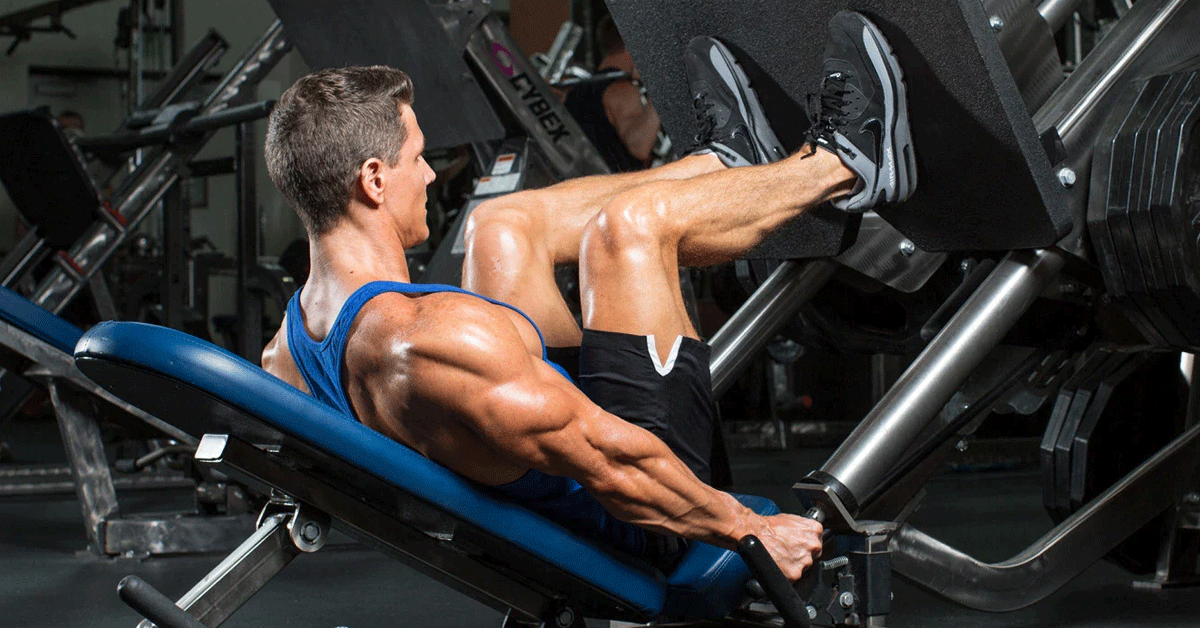
- Sit on the leg press machine with feet shoulder-width apart and back against the backrest.
- Push the platform away by extending knees and hips.
- Lower the platform by bending knees, keeping control.
- Repeat for desired reps, focusing on breathing and form.
- Optionally adjust weight and foot placement for variation.
Benefits- This exercise aids in balanced muscle development.
Bulgarian Split Squats:
Bulgarian split squats are a fundamental component of leg day workouts, focusing on the quadriceps, glutes, and stabilizing muscles.
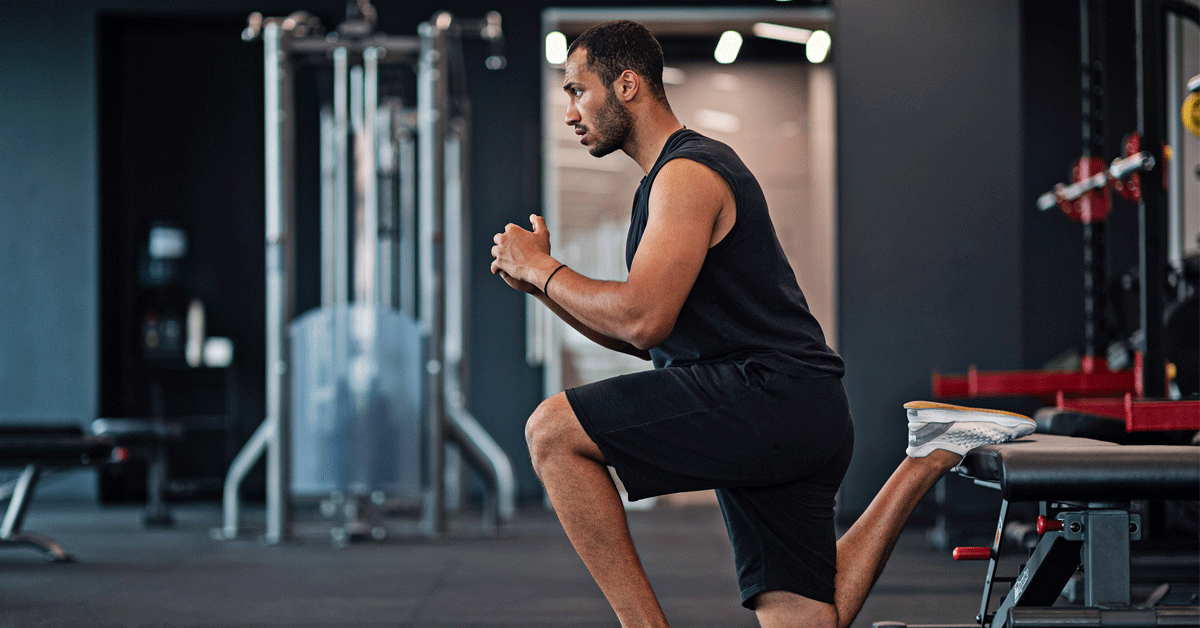
- Stand facing away from a bench or platform, with one foot elevated behind you.
- Lower your body by bending the front knee until the rear knee nearly touches the ground.
- Keep your torso upright and chest lifted throughout the movement.
- Push through the front heel to return to the starting position.
- Repeat for desired reps, then switch legs.
Benefits- Incorporating Bulgarian split squats into leg exercises and gym routines mitigates the risk of overuse injuries and also promotes movement patterns essential for athletic.
Leg Extensions:
Leg extensions target the quadriceps, aiding muscle growth and definition.
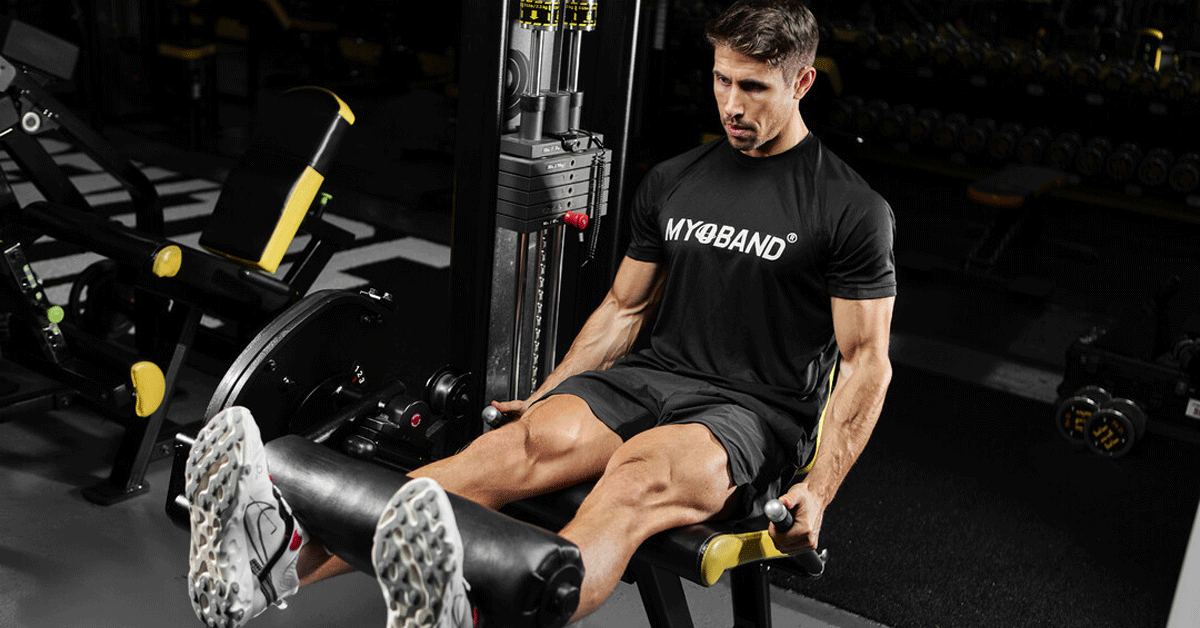
- Sit on the leg extension machine with your back against the backrest and your legs positioned under the leg pad.
- Extend your legs by straightening them until they are parallel to the ground.
- Hold the contraction briefly, then lower the weight back to the starting position.
- Repeat for the desired number of repetitions, focusing on controlled movements and proper form.
Benefits- Precise execution improves muscle balance and boosts lower body strength. It also enhances leg function during workouts.
Pull Day: Hamstring and Glute Focus
Pull day is essential for a balanced physique. It focuses on muscles used for pulling movements.
Romanian Deadlifts:
Romanian deadlifts are a staple in leg day workouts and are renowned for their effectiveness in targeting the hamstrings, glutes, and lower back.
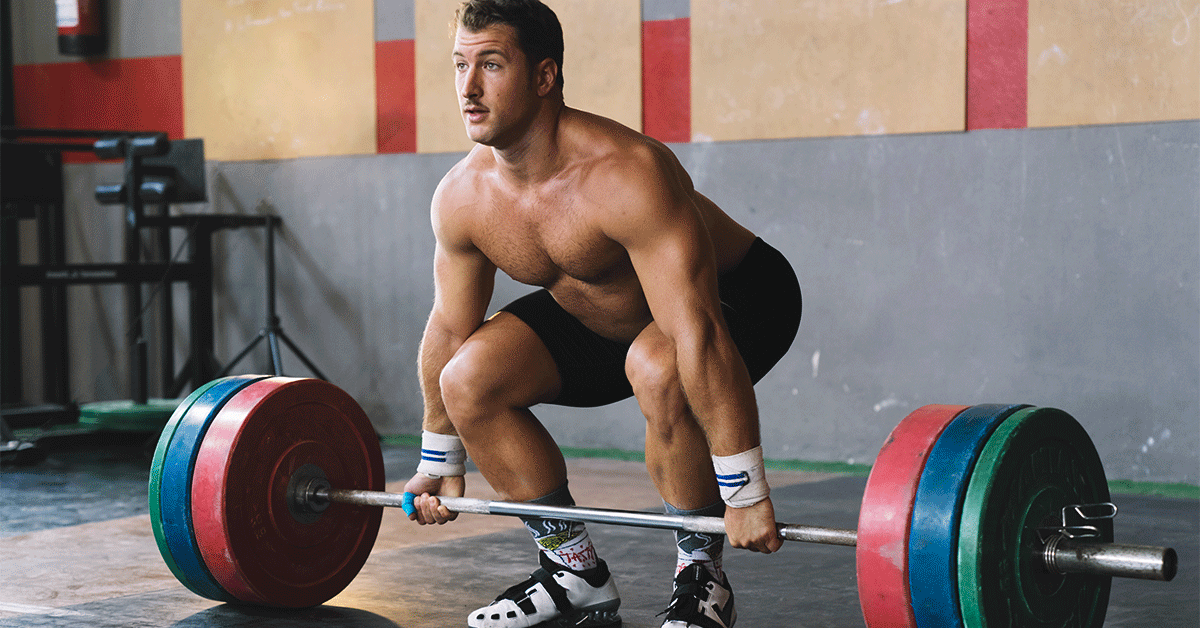
- Stand with feet hip-width apart, holding a barbell with an overhand grip, hands slightly wider than shoulder-width apart.
- Keeping your back straight, hinge at the hips and lower the barbell towards the ground, maintaining a slight bend in the knees.
- Lower the barbell until you feel a stretch in your hamstrings, ensuring your spine remains neutral.
- Engage your hamstrings and glutes to return to the starting position, squeezing your hips forward at the top.
- Repeat for the desired number of repetitions.
Benefits- Such exercises promote balanced muscular development and reduce the risk of injury during intense leg workouts.
Dumbbell Lunges:
Dumbbell lunges improve lower body strength, stability, balance, muscular symmetry, and coordination.
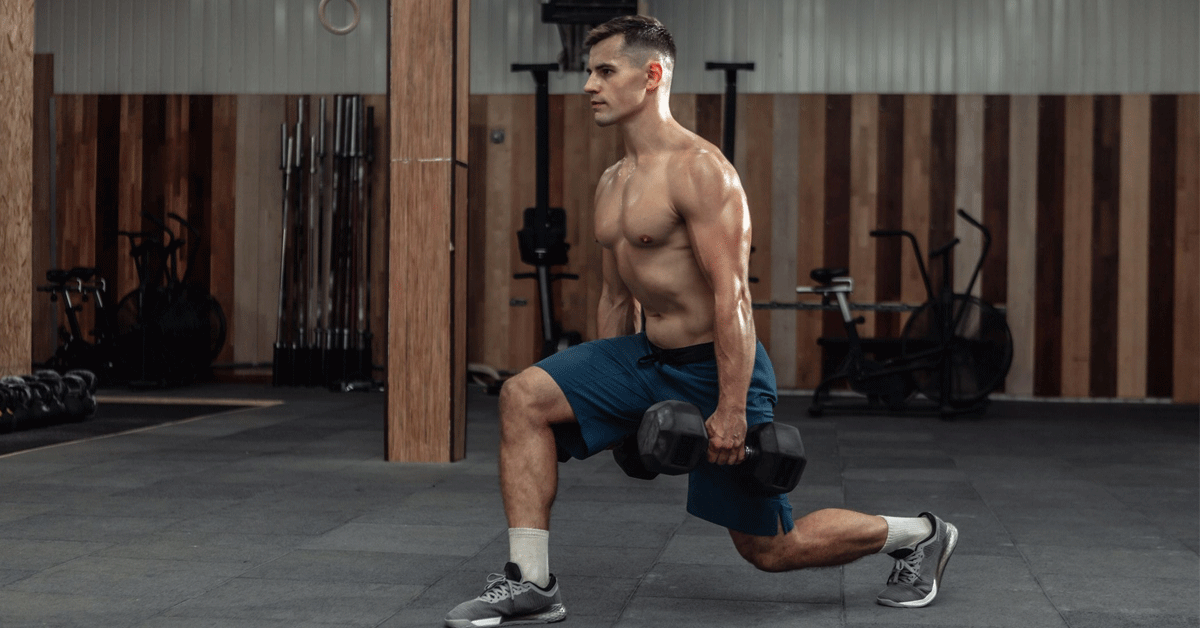
- Stand tall with dumbbells in each hand, arms fully extended by your sides.
- Take a step forward with one leg, lowering your body until both knees are bent at 90-degree angles.
- Keep your torso upright and your front knee aligned with your ankle
- Push through your front heel to return to the starting position.
- Repeat with the opposite leg, alternating between sides for the desired number of repetitions.
Benefits- This leg exercise fosters a holistic approach to lower body development and movement proficiency.
Hamstring Curls:
Hamstring curls stand out as a foundational leg exercise, specifically isolating and strengthening the hamstring muscles.
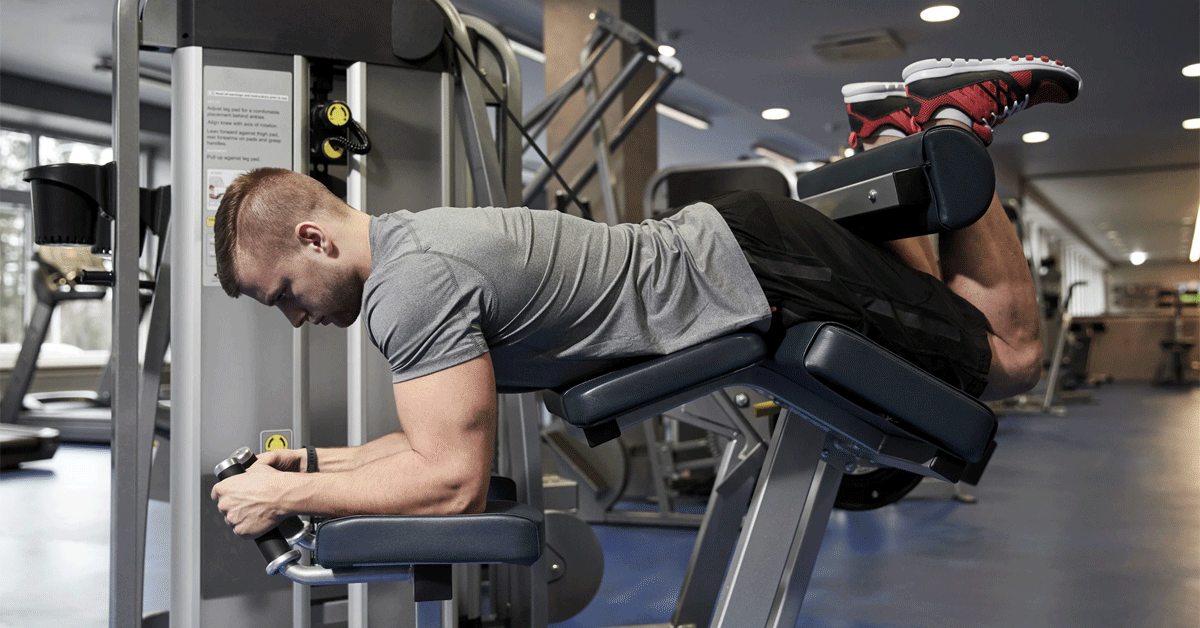
- Lie face down on a leg curl machine with your ankles under the padded lever.
- Grasp the handles for stability and ensure your legs are fully extended.
- Flex your knees to curl the lever towards your buttocks, contracting your hamstrings.
- Hold the peak contraction briefly, then slowly lower the lever back to the starting position.
- Repeat for the desired number of repetitions.
Benefits- This leg exercise enhances athletic performance and reduces the risk of injuries during intense leg day workouts in the gym.
Cable Pull-Throughs:
Cable pull-throughs engage hamstrings, glutes, and lower back. They improve hip hinge mechanics.
- Set up a cable machine with a low pulley attachment and a rope or handle.
- Stand facing away from the machine
- Grab the handle between your legs and walk forward until there's tension in the cable.
- Hinge at your hips, keeping a slight bend in your knees, and push your hips back while maintaining a straight back.
- Drive your hips forward explosively, squeezing your glutes at the top of the movement.
- Slowly return to the starting position and repeat for the desired number of repetitions.
Benefits- Cable pull-throughs enhance hip drive and explosiveness.
Barbell Hip Thrusts:
Barbell hip thrusts sculpt the glutes and hamstrings, reinforcing hip extension strength.
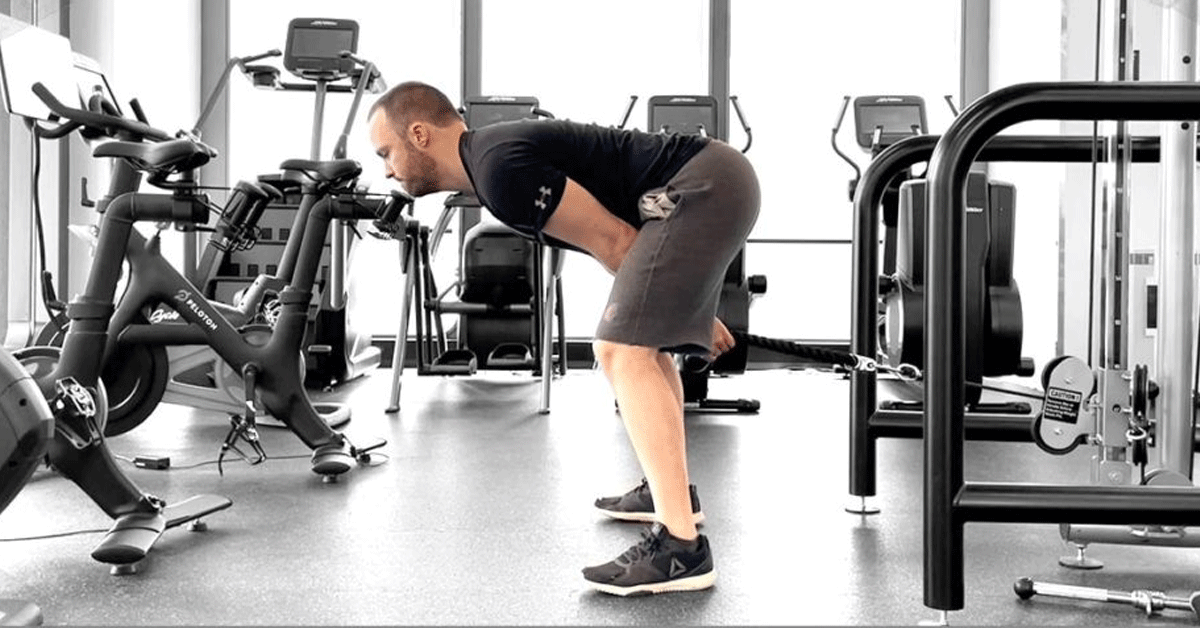
- Sit on the ground with your upper back against a bench and a barbell placed over your hips.
- Roll the barbell over your legs and position it just below your hip bones.
- Plant your feet firmly on the ground, hip-width apart, and grip the barbell with an overhand grip.
- Brace your core and drive your hips upward by pushing through your heels, lifting the barbell until your body forms a straight line from your shoulders to your knees.
- Squeeze your glutes at the top of the movement, then lower your hips back down under control.
- Repeat for the desired number of repetitions.
Benefits- This movement enhances lower body aesthetics and boosts functional strength. It improves performance in activities like running, jumping, and lifting.
Calf Raises:
Calf raises target calf muscles, improve strength, endurance, and leg definition.

- Stand with your feet hip-width apart on the edge of a step or a calf raise machine, with your heels hanging off the edge.
- Slowly raise your heels by pushing through the balls of your feet, lifting your body upward as high as possible.
- Hold the contraction briefly at the top, then lower your heels back down below the level of the step, feeling a stretch in your calves.
- Repeat for the desired number of repetitions.
Benefits- They promote lower leg development. Calf raises also improve ankle stability. This is crucial for sports and daily tasks.
Conclusion:
Including a push-pull-legs (PPL) routine boosts lower body strength, muscle mass, and performance. People can maximize gains and reduce injury risk. You can do this by strategically choosing exercises and practicing them either at the gym or at home. Adjust training variables and focus on proper form. Tailor your PPL routine to fit your goals, preferences, and fitness level. This customization is key for lasting success. Remember your body's signals. Track progress, and adapt training for desired outcomes.







